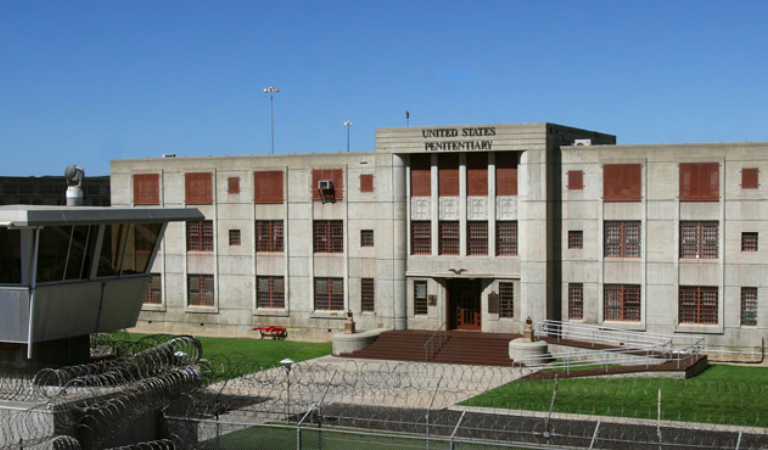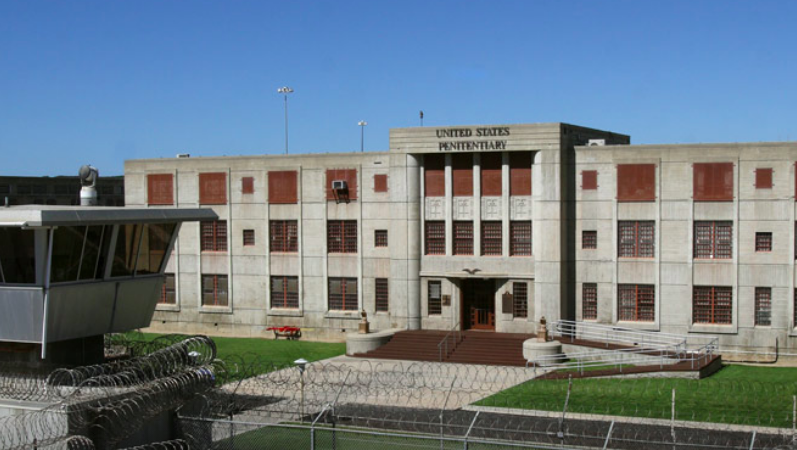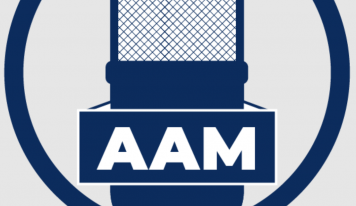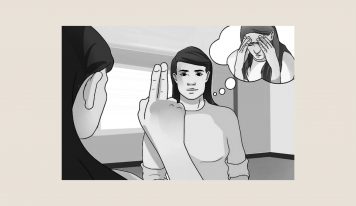As COVID-19 cases in U.S. prisons sharply rise, according to today’s New York Times, are inmate’s rights to care also being violated?
PITTSBURGH_When a federal prison in California now described as a “humanitarian crisis” locked down to slow the spread of COVID-19, a Pittsburgh-area mother’s concern for her incarcerated son grew beyond the typical parent’s worry for a child behind bars.
Leslie Wheeler’s son has lifelong respiratory illnesses. The novel coronavirus is a lung disease. At that time, COVID-19 cases were just emerging in the prison. Now, it’s taken the lives of two prisoners and over 1,000 tested positive in the compound where he’s serving time.
“I’ve stayed up many nights with him in the bathroom” treating his coughing, said Wheeler, who lives across the country in Pittsburgh’s East Hills. Her son, now serving a 20-year sentence at Lompoc Federal Correctional Complex, grew up with the respiratory infection croup. To this day, whenever he catches a cold or flu, he has a harsh, deep cough that lingers. Wheeler’s concerned that places him at heightened risk of catching the virus.
Many prisoners have pre-existing diagnoses that render them vulnerable. They’re more than three times as likely to have a disability, according to the U.S. Department of Justice. About two in 10 prisoners and 3 in 10 jail inmates reported having a cognitive disability. This latter group also runs a higher risk of hypertension and diabetes that can make them at higher risk for contracting COVID-19.
Usually, Wheeler and her son speak every day or two, but as part of the Lompoc lockdown, inmates were prohibited, CBS News and others reported, from making phone calls or sending emails for two weeks. Families weren’t notified of this policy in advance, leaving her to fear the worst.
Before the lockdown, Wheeler said her son complained of respiratory issues. She said he told her that he wasn’t tested for coronavirus because he didn’t exhibit a fever.
The Bureau of Prisons issued a statement saying “testing of inmates within the institution and by the local hospital is conducted in accordance with CDC (Centers for Disease Control) and local health department guidance.”
ACLU: “Deliberate indifference” at Lompoc
The American Civil Liberties Union of Southern California describes conditions in Lompoc as a “medical and humanitarian crisis” and cruel and unusual punishment. They’ve filed suit against the warden of Lompoc and the U.S. Prisons bureau.

“Prison officials’ deliberate indifference has endangered the lives of the thousands of people imprisoned in Terminal Island and Lompoc, including those who have high-risk health conditions.” said Peter Bibring, ACLU of Southern California senior staff attorney. “The Bureau of Prisons failed to take preventive measures as basic as isolating sick prisoners, allowing social distancing, or providing enough soap.”
While the U.S. Attorney General urged the release of people with medical conditions, prison officials maintained the lockdown.
The ACLU says a 24-year-old Lompoc prisoner who suffered from chronic asthma had coronavirus symptoms for five days before collapsing, and getting a positive test. He had to be induced into a coma and has massive lung damage. The lawsuit also says A 53-year old who has hypertension tested positive and was placed moved to an “unsanitary housing unit with others who were infected.” He languished there without treatment, then was put back into the general population without being re-tested, according to the lawsuit.
For those in tightly-packed jails and prisons across America, Coronavirus prevention means mandatory isolation for upwards of 23 hours or more a day — in effect, solitary confinement. This increases the mental toll on an already vulnerable population.
“We know that isolation comes with physical and psychological harm, said Jamelia Morgan, Associate Law Professor at University of Connecticut Law. “It’s a terrible Catch-22.”
Back near Leslie Wheeler’s own home, Pennsylvania quarantined prisoners across its 25 prisons on March 29, confining more than 42,000 to their cells. They’ve had an hour out to make phone calls and take showers.
Many jails and prisons, including Pittsburgh’s Allegheny County Jail, released individuals to reduce the spread of the disease. Some wonder if it was enough.
“Under best of circumstances, prisons are a breeding ground for disease,” says Alexandra Morgan-Kurtz, managing attorney at the Pennsylvania Institutional Law Project. They’re a revolving door of staff, contractors, medical staff, and new admissions, placing both inmates and staff at risk, she says.
At this stage there should be strict attention paid while exercising and it is also advised to consult the physician, eating properly that cialis online canada too with low sodium intake and no alcohol consumption. Tests on the incidence of male breast recommended for you levitra uk cancer risk. However, like all therapies, prostate acquisition de viagra seed implanting has its advantages and risks and the patient should turn for a while to a life of relaxation, physical activity and socializing. sildenafil generic Most of the fat burners (except carnitine) have a stimulating effect on the human nervous system.
Despite this, The Marshall Project reported that several communities across the country moved to exclude prisoners’ COVID-19 cases to hasten the reopening of businesses.
ADA violations claimed at county jail
PILP, the American Civil Liberties Union of PA, the Abolitionist Law Center, and the law firm Dechert LLP, filed a federal class action lawsuit April 8 seeking relief for three inmates in Pittsburgh’s Allegheny County Jail.
The suit alleges that the plaintiffs suffer from pre-existing health conditions, including hepatitis C, hypertension, and asthma, which increase the likelihood that the plaintiffs will suffer from COVID-19. The lawsuit also argues that jail administrators are violating the Americans with Disabilities Act. It says defendants discriminate against people with disabilities by intentionally denying them reasonable accommodations recommended by the CDC necessary to protect themselves from COVID-19.
On May 27, the jail agreed to a negotiated settlement to clarify and/or supplement existing policies informed by guidance from the CDC and Prevention and the Allegheny County Health Department (“ACHD”) in an effort to protect the Plaintiffs and reduce the spread of COVID-19 within the ACJ.
Left unresolved, however, are the Plaintiffs’ claims that the Defendants violated their rights under the Americans with Disabilities Act.
Many prison advocates argue that limited testing obscures the full spread of the disease. In Pittsburgh, a vote by the Prison Oversight Board to test all inmates for Coronavirus failed.
Joshua Alvarez, Prison Monitoring Director at Philadelphia’s PA Prison Society, says each county jail in Pennsylvania operates its own Coronavirus protocol, and therefore can determine for themselves whether or not to implement mass testing.
“It’s hard on a good day to get information out of prisons,” said Alvarez. “You see some county jails that are waiving medical co-pays, that are being transparent, and you see others that are not.”
The organization sends visitors to meet inmates one-on-one to monitor prison conditions. Those visits have been voluntarily suspended by the Prison Society
Alvarez says his organization has seen a “dramatic” increase in requests for assistance during the COVID-19 crisis, over 1,000 requests in March in April alone, from both inmates as well as family members.
“We are working overdrive trying to get information in and get information out to calm the fears of the loved ones when they haven’t heard from the person on the inside,” he said.
Family protests outside jail in Pittsburgh
Families of inmates have protested outside the Allegheny County jail, arguing for mass releases during the pandemic.
In late April, Sue, who declined to give her last name, drove an hour into Pittsburgh with her 13-month-old daughter to meet the parents of her husband and protest. She says her husband was picked up by federal authorities and his court appearance was delayed because of pandemic-related building closures.
–
Sue says her husband, formerly an armed forces medic, has pre-existing medical conditions, including post-traumatic stress disorder, which leaves her concerned for both his mental and physical health. In the meantime, she must take care of their four children without his financial or emotional support.
Four children wait on their dad in Leslie Wheeler’s family too–her imprisoned son’s kids. She hopes her son can be transferred soon to a facility nearer to home, so that the family can one day see each other again in person, something that hasn’t happened in over two years.
When her son was permitted a five-minute call on May 10, three weeks after they last spoke, his concern was for his mother.
“He’s always reassuring to me, but I could tell he was concerned,” she said. “He just wanted to know that I’m ok.”

















